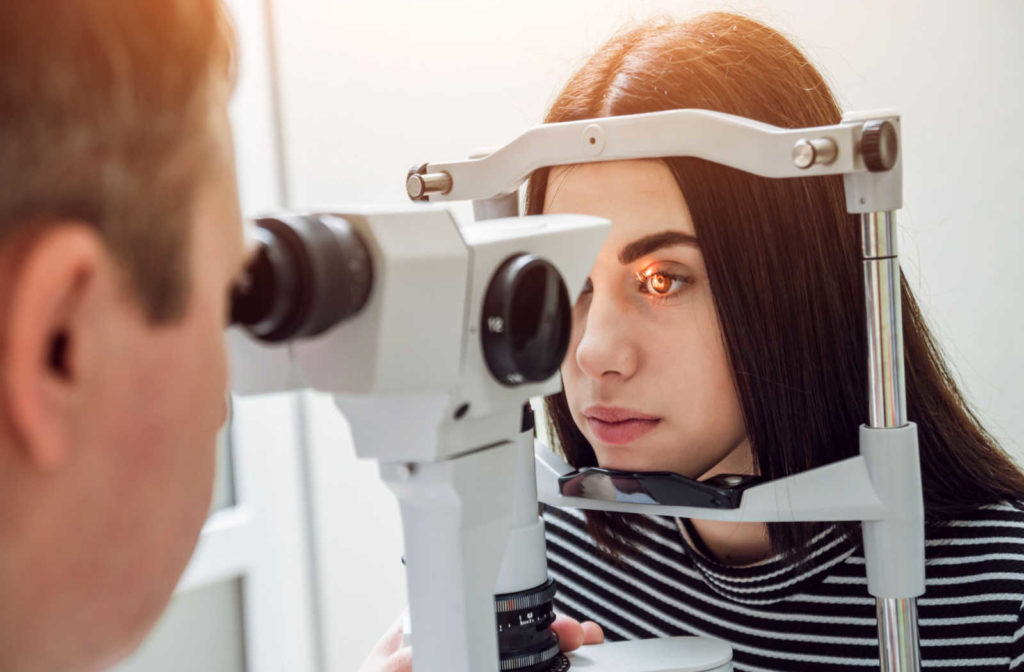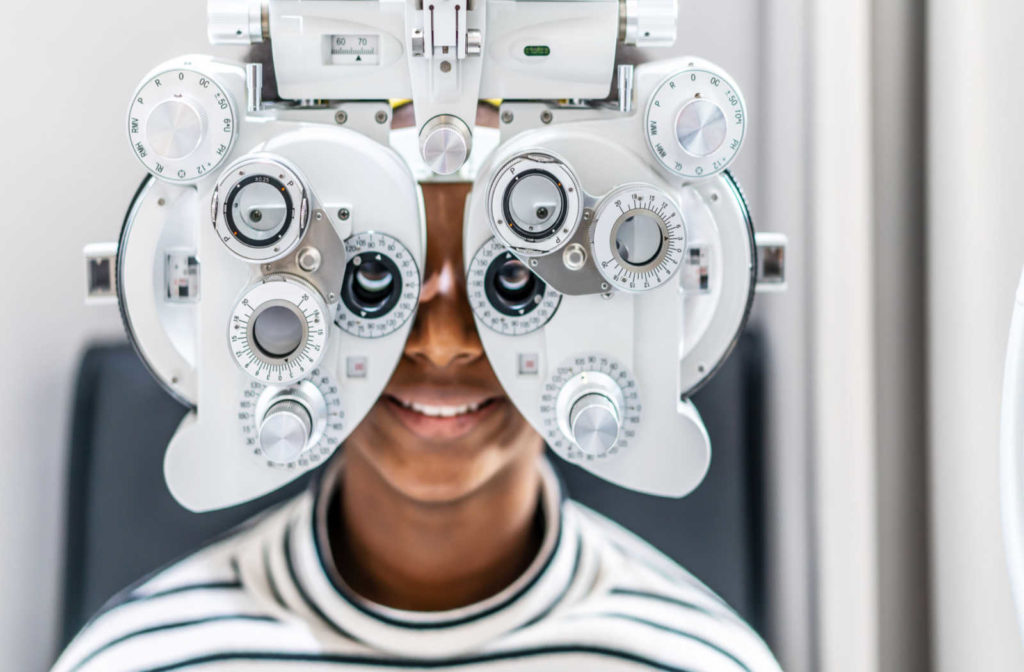Eyesight is one of the 5 senses and involves almost all activities of daily living. Healthy eyes and clear and comfortable vision are the top priority of Total Vision Sports Arena. And what better way to do this than with eye exams.
Besides determining ocular health, testing your eyesight is also essential for detecting and diagnosing eye conditions and diseases that can threaten your vision. You may be thinking, that’s great, but how does an optometrist test your eyesight? Let’s find out in more detail the most common tests involved in an eye exam.
Eye Exams
Just like going to the doctor for regular check-ups, having an eye exam at regular intervals or more if recommended are a vital part of preventative eye care. As you age, your risk for developing eye conditions and diseases increases.
There are numerous ways to protect your eyes and keep them healthy. One of the best ways is to have your eyesight tested.
A comprehensive vision exam is a key tool for diagnosing various vision disorders, like glaucoma or cataracts. Eye problems can impact family life, social life, and a person’s productivity in the workplace.
Vision Tests
The procedure to test your eyesight is generally comfortable and painless. Adult and senior eye exams can include but are not limited to the following:
Family and Medical History
Asking about your family history and overall health includes previous conditions, symptoms, medication, and concerns. Your optometrist will also ask whether you wear glasses or contact lenses.
Visual Acuity
Visual acuity measures the clarity of both eyes. Testing for visual acuity includes reading letters from a chart to measure how clear you can see at varying distances.
Usually, one eye is covered while the other gets tested. Results are in the form of a fraction with normal distance visual acuity measuring 20/20, meaning you can see objects clearly from 20 feet away.
Refraction Testing
Refraction tests determine your prescription, which is the lens power needed to compensate for refractive errors. Using a phoropter, your optometrist switches between lenses to assess which one allows you to see more clearly.
An autorefractor can also determine prescription by shining light into the eyes and then measuring the eye’s response. This test helps find the right prescription for vision correction or shows that you don’t need correction.

Keratometry Testing
This test measures the shape and curvature of the cornea, the eye’s outer surface, by focusing light and then measuring the reflection. Some people’s cornea is elongated, resulting in a condition called astigmatism. Keratometry measures the cornea for the proper fit of contact lenses.
Peripheral Visual Field Test
Peripheral vision is what you see on the sides of your visual field when focusing directly in front. Some people can lose side vision without noticing. This test measures your visual field and if you have any gaps.
Other Tests
Other tests that your optometrist uses to test your eyesight can include:
- Color perception
- Sensitivity to glare
- Eye muscle movements
- Pupil dilation
- Tonometry: Measures intraocular pressure created by fluid in the eye. Increased pressure in the eye can indicate glaucoma.
- Slit-lamp exam: High magnification and light allow the optometrist to examine the cornea, iris, retina, and lens at the back of the eye.
What Does Testing Your Eyesight Determine
Eye exams provide valuable information about your vision, early detection of conditions, and if correction or treatment is needed. The following eye-related concerns are what optometrists look for:
- Refractive errors: Nearsightedness (myopia), farsightedness (hyperopia), and astigmatism
- Age-related changes in vision: Cataracts, glaucoma, detached retina, and macular degeneration
- Eye muscle problems: Amblyopia (lazy eye) and strabismus (crossed eye)
- Corneal abrasion: Scratches or scars on the cornea
- Damage to nerves and blood vessels: These can cause bleeding
- Tumors in the eye
Early and Accurate Monitoring of Eyesight
Vision tests are a crucial part of eye exams and a necessary step in maintaining healthy eyes, especially since your vision changes as you age. We’ve covered how an optometrist tests eyesight, what they look for when performing these tests, and possible findings.
If you have questions about your vision or are worried about changes in your sight, schedule a consultation or book an appointment with Arena Eyeworks.



